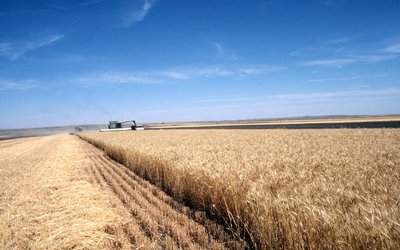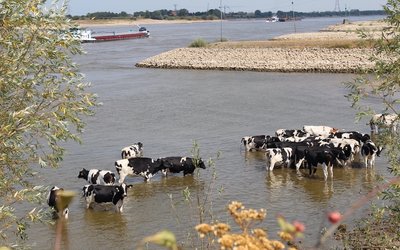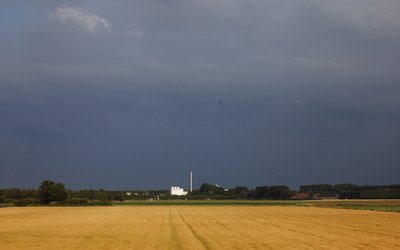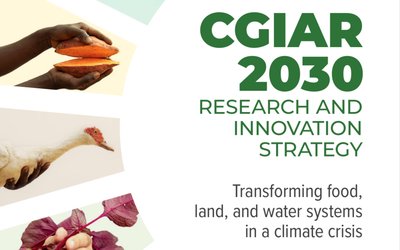Main challenge for Mediterranean region: to increase food production without depleting freshwater resources
October 1, 2018
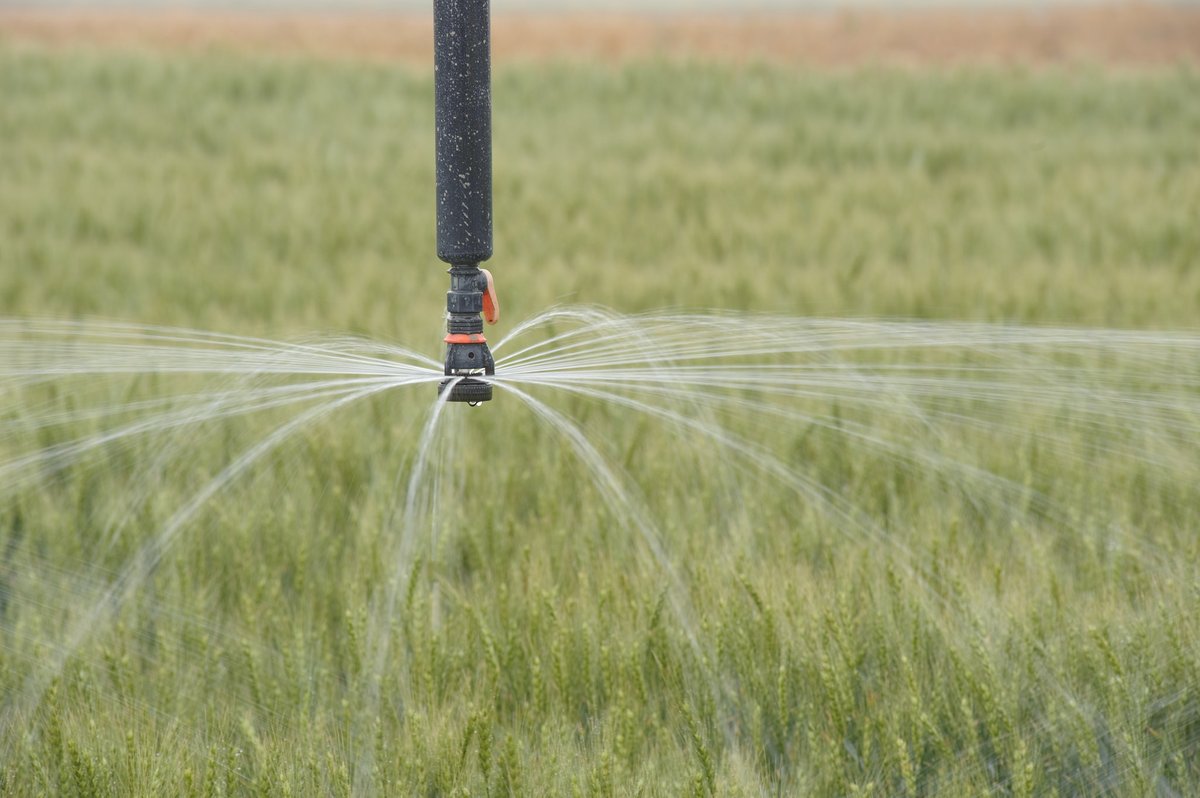
Sprinkler systems are one way to improve irrigation efficiency in the Mediterranean region (photo: USDA NRCS Texas, www.flickr.com)
Irrigation is the largest consumer of freshwater resources and has led to unsustainable water withdrawals in several world regions. In the coming decades, more than half of the global population is expected to live under conditions of water scarcity. It is essential to improve irrigation efficiency to adapt to future climate and socioeconomic change globally and in major arid regions. One of these regions is the Mediterranean, spanning over southern Europe, Northern Africa, and the Middle East.
The challenge of producing more food under water stress
Strategies have been evaluated to adapt the Mediterranean’s water and land management in view of future change. The Mediterranean is densely populated, water stress is high, and food production strongly depends on irrigation. Irrigation amounts to 69% of total water withdrawal in this region. Climate change will probably increase aridity and decrease freshwater resources, thus impacting future crop production. The main future challenges for this region are to reduce water stress and the depletion of freshwater resources, while increasing food production.
Irrigation efficiency needs to improve
The evaluation shows that the efficiency of the irrigation systems in the Mediterranean region needs to be improved substantially in order to continue satisfying the region’s future food demand with irrigated crops. Still, this would not allow for expanding irrigated cropland in areas where there is no cropland today, or where cropland is being managed with low intensity. After all, water withdrawal for irrigation most likely needs to be reduced, because the availability of water resources will reduce under climate change whilst water stress is already a major issue in this region. In fact, the share of irrigated cropland in future crop production needs to be considerably lower, despite improvements in irrigation efficiency.
Rain-fed cropland yields need to increase
As a result, and in addition to improving irrigation efficiency, the productivity of existing rain-fed cropland systems needs to be improved. The less progress is made in improving irrigation efficiency, the more difficult it will be to successfully increase rain-fed crop yields so that food productivity is high enough. Low improvements to irrigation efficiency require extremely high increases in crop production in rain-fed land systems. Such increases seem unrealistic, considering projected climate change and variability in precipitation.
Pressure on food markets
Changing environmental conditions and constraints on water resources will impact the trade balance of the region. Food production constraints may limit the region’s exports and strongly increase its dependency on food imports. At the same time, global food markets will come under increasing pressure due to growing demands. There may be limitations to a further increase of imports to the region to compensate for yield reductions or demand increase.
Integrated strategies
Clearly, integrated strategies are needed to improve the output of Mediterranean land systems, focusing on both a higher irrigation efficiency and higher crop yields of rain-fed cropland, whilst preserving valuable water resources.
Source: Malek and Verburg, 2018. Mitigation and Adaptation Strategies for Global Change 23: 821-837.

